The most recent North Wales Participation Network was held as part of a wider event – the Festival of Behaviour Change which took place in Pontio, Bangor University and was organised in partnership with Wales Audit Office and Good Practice Wales.
The Behaviour Change Festival was aimed at people with an interest in social change or innovation in roles in healthcare, education, local and national government and the voluntary sector including:
- Staff who deliver public services
- Policy Makers
- Elected Members
- Strategic Decision Makers
- Service Users with an interest in better public services
A major part of the festival was the gamification aspect to each day. If you read our most recent newsletter, this was featured as the ‘Method of the Month’. Let’s explore how this works in more detail:
Each participant had 3 ‘game cards’ inside the delegate pack that was given out upon arrival. Each card either represented ‘easy’, ‘medium’ or ‘hard’ and had a list of challenges to complete throughout the day. When you complete a challenge, you get a stamp on your game card and a completed card wins a small prize.
I like a challenge, so I went straight to the card labelled ‘hard’ and had a look at what I’d need to do in order to win a prize:
- Walk 6000 steps
- Order a healthy meal from restaurant within the venue
- Recognise 3 good things that happened today
- Join with another group
- Attend all events in one day
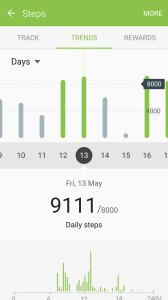 It wasn’t as easy as simply asking for a stamp, you needed to provide proof…
It wasn’t as easy as simply asking for a stamp, you needed to provide proof…
I used a step-counter app on my phone to keep track of my footsteps (I’d already walked to the venue so was over half-way towards the target before the event began), they had pedometers available too.
At lunchtime, I took a photograph of my receipt and my meal and was awarded a stamp for ‘ordering a healthy meal’ 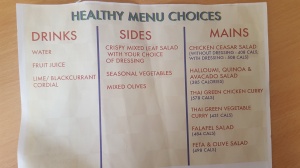
I also intended to use photos as proof for recognising positive things that happened – the sun was shining, our network event was very well attended and we had an excellent discussion – I sadly didn’t gain the stamp for this challenge, as I was busy facilitating the network event and only had a chance to take 1 photograph so missed out due to lack of evidence!
In order to join with another group, there were various colours of wristbands in our delegate packs – 4 different colours in total. This could be proved by taking a photo of the different coloured wristbands.
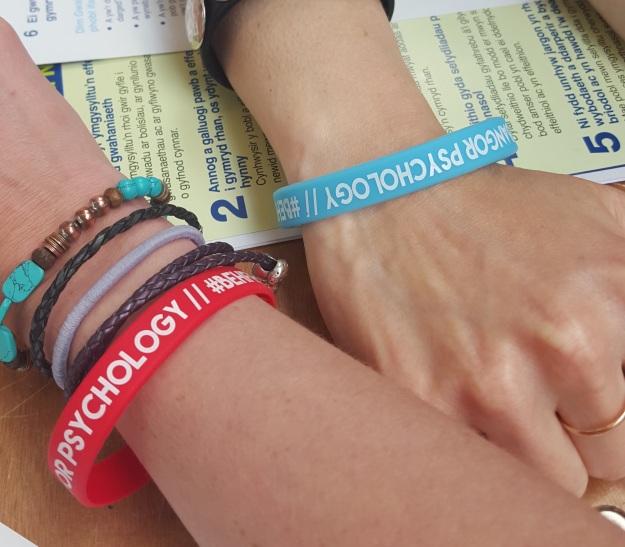
To prove you attended all the events in one day, after leaving a session the participants who were playing the game could get a stamp for their card.
Although I didn’t gain every stamp in order to win a prize, this activity was a very fun way to participate in addition to the interesting sessions taking place as part of the festival.
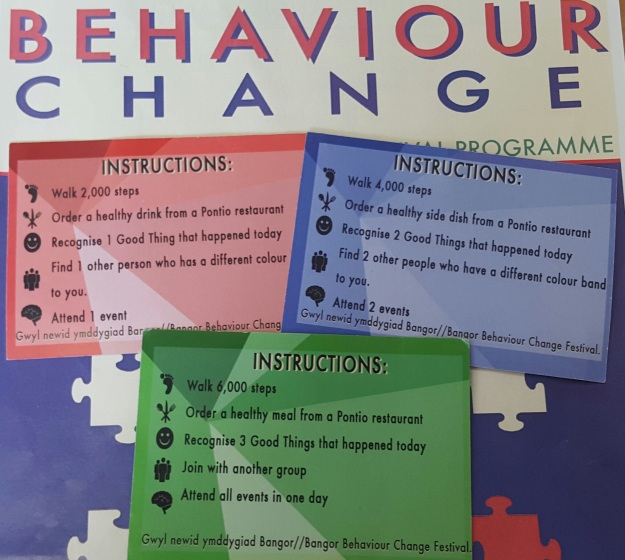
Apply this game to your own life
This technique is incredibly motivational if you apply it to your everyday life. There is a website and mobile app I’ve discovered called Habitica which turns your life into an RPG (role-playing-game). You set your own tasks and goals, rate their difficulty and when you complete them your character is rewarded! Be warned, if you don’t complete your tasks, this will harm your character’s health and you will have to work harder to bring it back up again.
Random acts of kindness
In addition to the game cards, inside our delegate pack was information about ‘random acts of kindness’ …and some stickers. The information sheet suggested these possible random acts of kindness:
- Leave a used book in a cafe
- Tell someone how they have impacted your life
- Buy a drink for the person behind you in the queue
- Hide a small gift for a stranger to discover
- Pay someone a compliment
- Give a handwritten note to a friend
The game was to use the stickers provided to identify your random acts of kindness. The aim of this game is to create a positive experience for everyone. Small, simple and commonly spontaneous acts of kindness, often performed to strangers, have been shown to significantly increase feelings of happiness for both the giver and receiver. Additionally, consciously reflecting upon such acts is linked to a reduction in negative emotions and is thought to enhance an optimistic outlook.
Research has shown that random acts of kindness can be an effective way in which to enhance your social and emotional wellbeing, which is further connected to relationship skills, responsible decision-making, self-esteem and self-awareness.
Have you used any gamification activities with service users, or have you used a gamification app for personal behaviour change goals? Why might random acts of kindness work for you? Please let us know in the comments below and join our discussion.
– Sarah

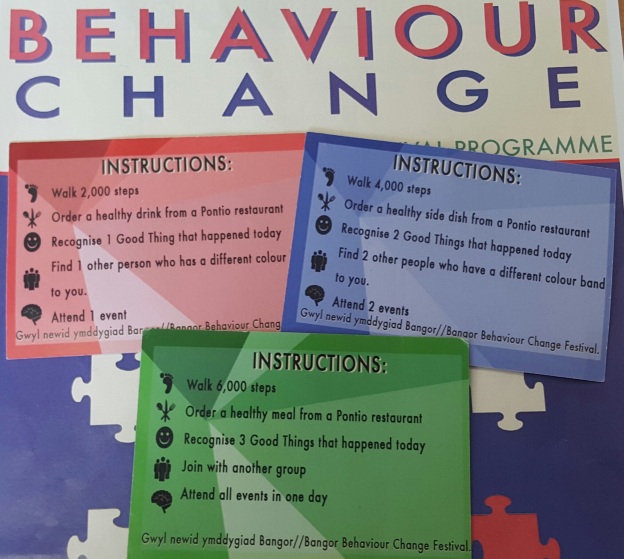
Pingback: RHP: Great customer service, great employer | Good Practice Exchange at The Wales Audit Office